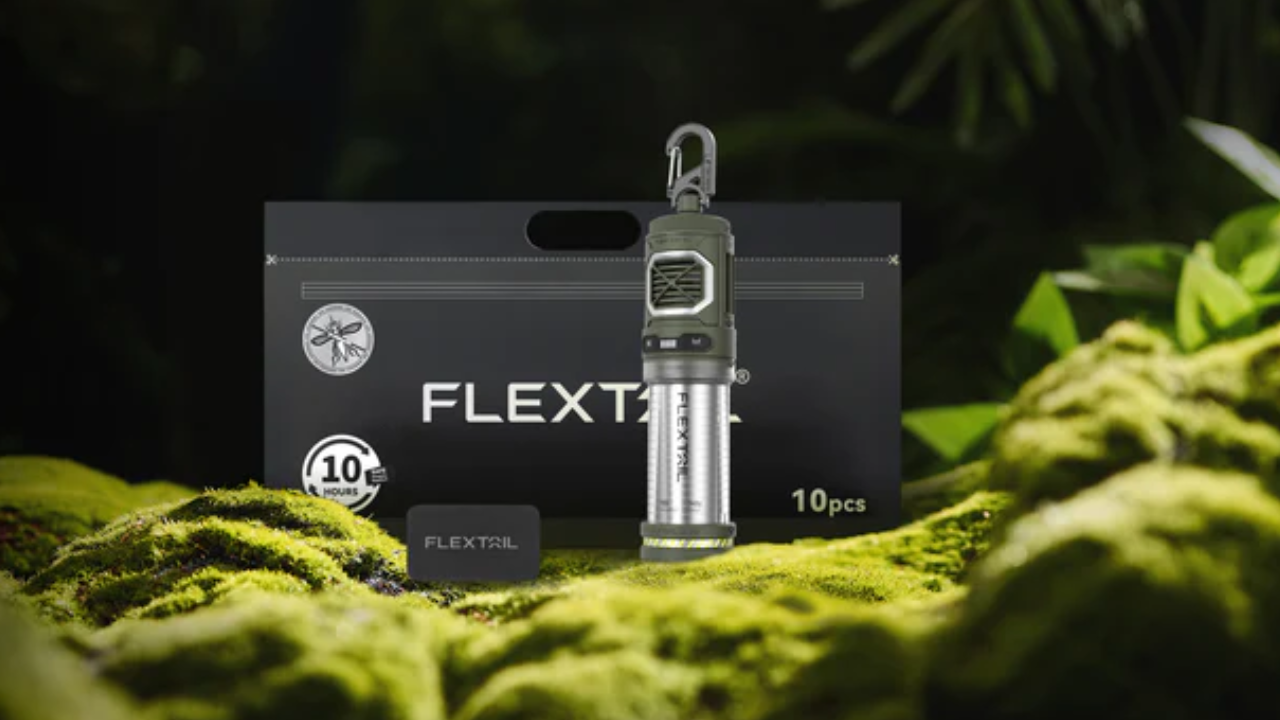A comfortable outdoor experience when camping depends on your choice of bug repellant. Choose a repellent with active chemicals such as oil of lemon eucalyptus, picaridin, or DEET. Picaridin is a less oily, lighter alternative to DEET, which is very efficient against a variety of insects. Lemon eucalyptus oil is a plant-based alternative that provides organic defense.
For best results, choose a repellent with a 20% concentration or higher. For further protection, put on long sleeves, trousers, and closed-toe shoes. For complete bug repellent for camping control, think about being far from bodies of water and enclosing sleeping quarters with a mosquito net. Reapply repellant as necessary, particularly after perspiring or swimming.
The Various Kinds of Camping Bug Repellents
There are several kinds of bug repellents made specifically for camping, and each has its own special qualities and active components. These are a few typical kinds:
DEET-Based Repellents:
DEET is a highly effective insect repellent. DEET forms a protective barrier on the skin that keeps insects from landing, and it is well-known for its effectiveness against a variety of insects. Higher percentages, which are available in different concentrations, provide protection that lasts longer. Although many campers have always used DEET, some may not find its pungent smell and possibility for skin irritation to be very appealing.
Repellents Based on Picaridin:
Picaridin is a synthetic substance that is becoming more and more well-liked as a DEET substitute. Its odorless quality and non-greasy skin sensation are what distinguish it. Picaridin-based repellents provide good protection against ticks and mosquitoes and are a good choice for anyone looking for a less-thickened but still effective repellent. They are frequently favored by people who are DEET sensitive.
Oil of Lemon Eucalyptus (OLE):
This plant-based repellant made from the lemon eucalyptus tree is ideal for campers who want natural solutions. OLE is well known for its effectiveness in repelling ticks and mosquitoes and offers a natural substitute for synthetic pesticides. It's crucial to remember that kids younger than three years old can find OLE inappropriate.
Permethrin:
Although permethrin isn't a conventional skin repellent, it is a highly effective insect repellent that can be used on clothing, gear, and camping supplies. This artificial substance forms a barrier that protects textiles from insects, killing them instantly upon contact. Clothing coated with permethrin is a great option for prolonged outdoor activities because it stays effective even after several washings.
Natural Repellents:
Using the potency of essential oils, natural repellents are a popular choice among campers. Certain ingredients, such as eucalyptus, tea tree, citronella, and lavender, are well known for their ability to repel insects. Campers can blend these oils with water or carrier oils to make their DIY repellent sprays. Natural repellents are more appealing to people who value environmentally friendly solutions, even though they might not offer as long-lasting protection as their synthetic equivalents.
Wristbands and Patches:
In case you're not fond of putting lotions or sprays on your skin directly, bug-repellent wristbands and patches provide a handy substitute. These goods, which are infused with repellent substances, can be fastened to garments or worn on the wrist or ankle. Even though they might not provide as much coverage as conventional repellents, they are useful complements to camping supplies.
Ultrasonic Repellents:
Using high-frequency sound waves to repel insects, ultrasonic bug repellents employ a novel strategy. These gadgets claim to produce a sonic barrier that aggravates and chases bugs like mosquitoes away. However, there is little scientific proof to support their effectiveness, and outcomes can differ.
Finally
There are many different solutions available in the world of camping bug repellents to suit different demands and preferences. From the tried-and-true DEET-based formulations to natural substitutes and cutting-edge fixes like garments treated with permethrin, campers may now enjoy bug-free trips customized to their tastes. Select carefully, and allow the splendor of the natural world to define your camping experience rather than annoying mosquito bites.


